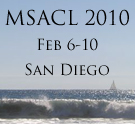Intended Audience: This session is intended for clinical laboratory scientists, medical technologists, pathologists, medical directors, laboratory directors, toxicologists, analytical chemists, supervisors and managers.
Needs Assessment: The number of clinical labs that have begun to use LC-MS/MS systems in their laboratory has continued to grow. In many situations, these labs are run with staff that possesses limited mass spectrometry or chromatographic background. Several of the mass spectrometry-specific criteria in regulatory checklists concern topics that are not present in other platforms. To an inexperienced lab, the process to become a compliant lab may seem like a daunting task. This session is intended to walk the participants with little or no mass spectrometry experience through the process of insuring that their lab LC-MS/MS assay are compliant, by helping them to understand the concepts behind each criteria on the regulatory checklists. This criterion includes instrument tuning, ion ratios and ion suppression. This session will also give examples and tools to aid with proper documentation and make sure certain criteria are met. Other processes that may help keep your LC-MS/MS laboratory running smoothly, such as instrument checklists, will also be discussed.
Learning Objectives: After this session, participants will be able to: 1) identify and understand requirements for setting up a compliant LC-MS/MS lab; 2) define the necessary steps to properly integrate unique recommendations for LC-MS/MS assays; and 3) explain other processes that may help keep the lab running smoothly.
Session Overview: This session is intended to walk the participants through the process of initially setting up and then maintaining a compliant LC-MS/MS laboratory including the daily documentation that is required. The most recent compliance checklists will be discussed point-by-point with detailed explanations and examples of how to integrate these requirements into your laboratory. Also pointed out will be potential documentation and standardization solutions to provide options in preventing problems.
|
|



